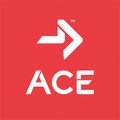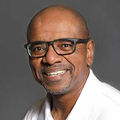National Native American Heritage Month is celebrated every November and highlights the culture, traditions and achievements of the nation’s original inhabitants and their descendants, including Native Americans, Alaska Natives, Native Hawaiians and those from affiliated island communities.
Within the health and fitness industry, these are dramatically underserved populations and there are glaring racial and ethnic disparities that should raise the alarm for all ACE Certified Professionals. For example, members of these communities have a life expectancy that is 5.5 years shorter than the general U.S. population, due in large part to higher rates of death from chronic illness. In addition, the rate of intentional self-harm and suicide is 1.7 times higher than in the overall population (and 2.5 times higher among youth).
Consider the following health statistics for adults from 2022:
|
|
% of American Indians/Alaskan Natives |
% of Native Hawaiians/Pacific Islanders |
% of Total U.S. Population |
|
Poor or fair health status |
25% |
19% |
15% |
|
Obesity |
38% |
39% |
33% |
|
Diagnosed with diabetes |
15% |
* |
10% |
|
Did not have health insurance |
33% |
15% |
12% |
|
Had regular feelings of depression |
9% |
* |
5% |
* No reliable data
The Value of Representation
To celebrate our Native American health coaches and exercise professionals, ACE wanted to not only explore how a person’s heritage can inform the work they do, but also how ACE Certified Pros might make inroads into communities they are currently not reaching.
Dr. Natalie O’Neal grew up living a very active lifestyle on the Fort Peck Reservation in “very remote, very rural” northeastern Montana. After earning a bachelor’s degree in exercise science and becoming a doctor of physical therapy, she decided to return home to help fill what she sees as a real need in the community: education and opportunities around physical activity and healthy living.
O’Neal, a citizen of the Fork Peck Assiniboine and Sioux tribes, is currently a consultant for the launch of a large health clinic and wellness center, which features not only a fitness facility but also a physical therapy office, which she helped design.
Access to such facilities is a primary concern in the area. “There’s not a Planet Fitness anywhere nearby,” O’Neal says. “It’s pretty hard to get access and it’s pretty cold here and snows a lot of the year, so even outdoor activities aren’t always feasible.”
O’Neal sees tremendous value in bringing the more than two decades’ worth of education and experience back to her community. “Historically, indigenous peoples, especially indigenous peoples in my region, were very active,” explains O’Neal. “They were nomadic people, constantly moving, constantly out doing things in the environment. So, having the ability to move is important not only from a health perspective, but just for a balanced life… spiritually, mentally and physically.” Movement is culturally important, in addition to all the other benefits of physical activity.
O’Neal is understandably proud to serve as a model of what it means to return to one’s community and give back by sharing your passion and expertise. And, while she mentions the value to children of seeing someone succeed and return, O’Neal also points out that seniors on the reservation are often new to fitness, as well. Many have never stepped foot into a fitness facility before and are astonished at what they see and experience.
How You Can Make a Difference
“If you’re someone who has a skill set, and you would like to share that knowledge with a community that you know for a fact is underserved—and I think it’s safe to say that a majority of our indigenous communities are underserved—educate yourself,” O’Neal says. Reach out and let them know that you’d like to help and have expertise you can share.
Be sure that you are open to learning and actively listen to members of the community when they express what it is they need or want, as well as to better understanding the culture of the community. As O’Neal explains, “That is so critical when it comes to providing not only a welcoming environment for people who want to come work out, for Native American people, it’s a huge part of feeling safe, specifically safe around an individual who’s not from the community.” Understandably, trusting outsiders can be challenging for these populations.
That said, she encourages all ACE Pros to reach out if they are interested, as there is a shortage of expertise and access in so many of these communities. Sharing your passion can help address some of the disparities mentioned above, so this an ideal way to give back in a meaningful, fulfilling and rewarding way.
If you are interested in learning more about how social determinants of health and health disparities affect access to health and fitness resources, and how to strengthen communication with people from diverse backgrounds, check out Taking Action With ACE: Practicing Equity, Diversity and Inclusion as a Health and Exercise Professional—worth 0.3 continuing education credits.




 by
by 




 by
by